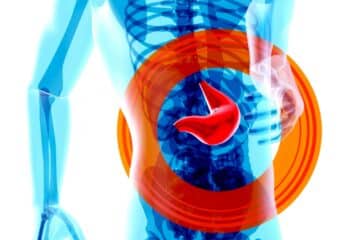Acupuncture is a form of medicine that originated in ancient China. Today, it is still commonly used to treat a wide variety of conditions. Acupuncture is often used alone or in conjunction with other forms of alternative medicine and/or Western medicine. If you would like to know more about acupuncture, keep reading.
1. What Is Acupuncture?
Acupuncture utilizes hair-thin needles to treat a variety of conditions. The acupuncturist inserts the needles into the skin. However, because the needles are so thin, they don’t damage the skin or cause much if any discomfort. Some patients feel more of a pressure or ache than direct pain.
Your acupuncturist may potentially insert needles in multiple locations, including the back, legs, arms, stomach, neck, face, ears, toes, and many more places. The acupuncturist knows the correct areas that correspond with specific conditions and pains. Acupuncture helps conditions by stimulating the nervous system in a specific way that triggers the body to heal itself.
2. What Conditions Does Acupuncture Improve?
Acupuncture is a popular choice for people with chronic pain; it can help with headaches, migraines, arthritis, chronic back/neck pain, myofascial pain, menstrual pain, and irritable bowel syndrome. It’s also a popular choice for people with hard-to-treat conditions such as fibromyalgia, Parkinson’s disease, and post-stroke syndromes.
In addition to physical conditions, acupuncture may help with addiction, anxiety, depression, insomnia and neurosis. It may also help conditions related to eye, ear, and throat health, as well as respiratory health. In cases where nothing else seems to help or when financial concerns exist, patients with infertility issues (male and female) or impotency may seek acupuncture.
3. What Are the Side Effects of Acupuncture?
Acupuncture can have minor side effects, but they are quite mild compared to Western medicine alternatives such as surgery or medications, addictive opioid pain pills and the like. Acupuncture side effects may include minor bruising and mild bleeding as the points are removed.
Although very uncommon and usually resolved by eating a meal before treatment, some patients may feel some dizziness or nausea after treatment. Less common, one may experience a skin rash or allergic reaction.
4. Are Acupuncturists Licensed?
The laws regarding acupuncture depend on the state in which you live. In Wisconsin, a person must have a master’s degree from an ACAOM-accredited school to perform acupuncture. They must also pass the NCCAOM Acupuncture and Oriental Medicine exam.
Most states have similar requirements for acupuncturists to accept patients. Some states, however, do not require an acupuncturist to take/pass an exam. Some states do not allow anyone to get an acupuncturist license; depending on the state, they may be allowed to work under the supervision of a doctor.
5. How Much Does Acupuncture Cost?
The first visit typically costs more as it should involve a more time-consuming consultation. For routine visits that address the diagnosed condition, expect to pay about $90 to $110 per session. You may get discounts if you pay for a series of visits as part of a treatment plan at once. The acupuncturist may recommend additional services that vary in cost.
In some cases, your insurance may cover some visits. Depending on your unique insurance policy, you may or may not need a referral from your primary care physician to be covered. Some acupuncture clinics may also offer specials, so make sure to ask about any discounts.
Acupuncture can be a great alternative, especially if nothing else has worked. It has little to no side effects, and can be a great compliment to your Western medicine treatments. Your licensed acupuncturist can treat a wide variety of conditions. If you would like to know more, contact us at Acupuncture & Holistic Health Associates. https://holisticacupuncture.net/contact-us-2/


